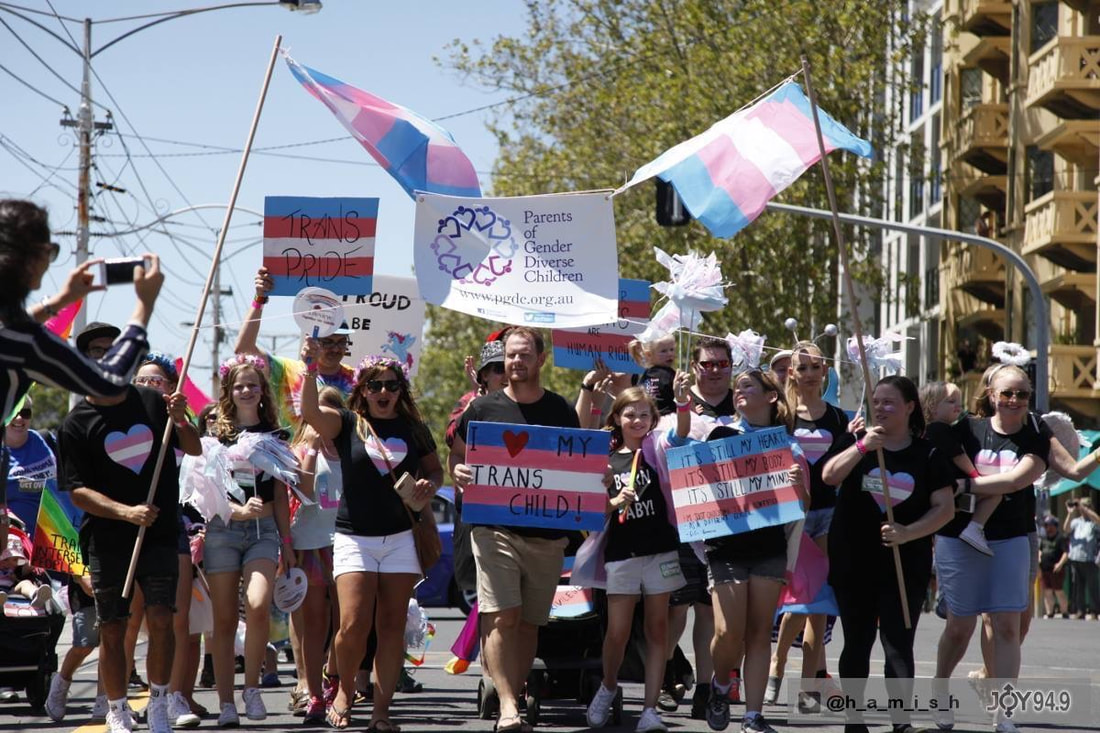 Just when some trans people and their families might have hoped it was safe to start going back in the water of ordinary life, the ABC stir up the dangerous waves again. Coming on top of the extraordinary 'no' campaign assault on gender diversity during the postal survey, its seems mainstream media seek to learn few lessons. Last night's showing (27 November 2017) of the BBC documentary Transgender Kids: Who Knows Best? was a striking case in point. Its initial showing (in the UK in January 2017) was strongly opposed and then vigorously criticised by many authoritative voices in the UK, including Trans Media Watch who made a formal complaint to the BBC questioning whether it had breached its own code of conduct. Such protests rightly raised a plethora of issues, not least the alarmist commentary and space given to isolated and pernicious 'experts' whose views have long been discredited by their peers and left behind by modern medical, psychological and pastoral authorities and practice. Knowing all this, why then did the ABC repeat the BBC's own mistakes in the face of a transgender community still reeling from recent affronts? Was it a false sense of 'balance', perhaps justified in some strange thinking of ABC minds by the repeat showing of another BBC offering immediately beforehand in Louis Theroux's 2015 documentary Transgender Kids? Whether yes or no, it reflects major problems with media handling of transgender issues today... It would be both time and space consuming to itemise all that was problematic about Transgender Kids: Who Knows Best?, and also unnecessary, for this has been well covered by aforementioned criticism in the UK, not least Trans Media Watch's formal complaint to the BBC. Finding a few positive elements, it was good to see something of the work of the so-called 'radical reverend' Cheri diNovo portrayed, together with the delightful, insightful and compassionate Hershel Russel (psychotherapist, educator and trans man) who spoke well but only in brief rebuttals. Like the admirable mainstream 'expert' Dr Norman Spack, they were presented essentially as backdrop to the fearful insistent voice over and its obsession with the long lamented Drs Zucker and Blanchard. 'Who Knows Best?' was thus not a real question but rather another opportunity to give yet another a platform to tired and destructive viewpoints. Much as many of us sympathise with the political undermining of the national broadcaster and its too often sad reliance on overseas content, this was more than sloppy journalism. It was an extended, if slightly more sophisticated extension, of the 'no' campaign's attack on trans lives, health and families. Has the ABC then also not received the message the most obdurate of right-wing political and religious leaders refuse to accept - that Australia's postal survey result declared a resounding Australian 'yes' to our sexual and gender diversity and to affirming agendas to move this forward? Of course, the reactionary right is entitled to some media space, but, as the Queensland election also showed this week, the balance is not to be found by privileging those who seek to destroy rather than share the see-saw. As with climate change denial, such thinking and approaches are old and unconstructive news, however strongly a diminishing few may hold to them.
In contrast, Louis Theroux's Transgender Kids remains as an example of more thoughtful work. Here we did not find the patriarchal gatekeepers of the later BBC documentary: whom, I have to say, reminded me of others (including certain religious figures) intent today on vigorously asserting their discredited views, entitlement, and expected control, in the face of decades of deep study, reason and lived experience. Instead, the focus was on the children (who know) themselves and those who traveled with, rather than standing over, them in judgement. In the more recent documentary, the children were essentially 'seen and not heard', whilst peculiar decades-old footage was added of generic children playing in playgrounds and adults of various gender diverse presentations standing outside or entering clubs and other establishments - all presumably designed to evoke more 'settled' and 'safe' times before more 'suspect' issues and people changed our worlds? Theroux' style is rather always, as far as is possible. to allow people to be and speak for themselves, so that their truth and their own own failings can reveal themselves to us. This does not leave his work without criticism. Yet it does indeed nurture the kind of empathy, understanding and support which is required. The direction and substance of Theroux' documentary recognises the genuine heartaches, very real struggles and sometimes deeply ambiguous joys and griefs of those involved. It leads us into the wondrous mystery of our human diversity, away from the frightened defence of past binary fortifications and into the cherishing of all our lives, including, not least, our amazingly differently gifted children. Indeed, if there is anything I take away from the reaction to the documentaries, it is fresh appreciation for the the families, the caring and perceptive professionals, and the children themselves who journey through these things every day. That is not an easy pathway. So I am delighted to find out more about bodies like Transcend and Parents of Gender Diverse Children, which, like Pflag and our few and hard-pressed gender clinics, are shining examples for others today. Now ABC and other media, telling us more about that would be worth a new documentary and more. I suspect they would not claim to know everything, but they bring us so much closer to those who truly do know best.
2 Comments
Josephine Inkpin
1/16/2023 08:34:26 am
thankyou
Reply
Leave a Reply. |
AuthorThe Revd Dr Jo Inkpin: Archives
March 2024
Categories
All
|
 RSS Feed
RSS Feed